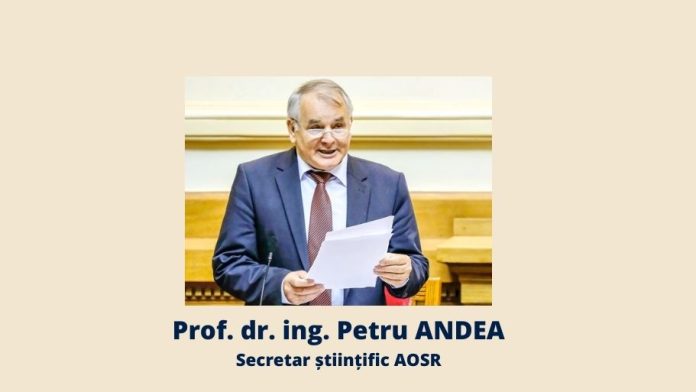1. Schools in general and universities in particular are undoubtedly the strongest concentrations of intellectual elites. Their mission is to ensure the moral and spiritual health of the nation through education, to prepare young people for life, thereby ensuring the future of the nation.
We regret to note that both the school and its servants, the teachers, are frequent targets of a stream of derogatory speeches. More or less knowledgeable people do not hesitate to characterize education as irrelevant, mediocre, outdated, poorly managed, disconnected from reality and especially disconnected from the labor market, etc. Isolated cases of academic or pedagogical malpractice are immediately and unjustly widespread throughout education.
Of course, education is a big system and has a certain inertia, which can appear as resistance to change. However, we must emphasize the efforts to modernize it, being significant the concepts that underlie this modernization: the concept of ” educated Romania” and the concept of ” competent Romania” . The most visible are the efforts to integrate the academic elite into what we call the digital age . We live today in an environment where digital technology means everything; information seeking, fun, communication, learning. The younger generation is rapidly entering the “digital age,” and students often know more about digital technology than their teachers.
In particular, we can observe the paradox that Romanians are known and feared as formidable hackers, but their talent in computer science is not found in a Romanian production of new technologies.
In the digital age, Romanian universities need to make more use of e-learning, to learn how to learn, so that graduates become a flexible class and able to constantly acquire new skills.
2 . The economic elite of academic expression is made up of professors, researchers, specialized journalists, analysts, etc., through whose activity are formed both professionals in the field and especially the currents of opinion in the economic field.
If we refer to the schools in the economic field, we notice that the profile faculties are also caught in the vice of the need for self-financing, which generates the dilemma between accepting a large number of students, quantitative element, versus high performance, which requires exigency and consequence decrease in the number of students, but also in funding.
As a result, employers are playing an increasingly important role in the training of specialists, supplementing and supplementing through various programs what higher education has failed to do.
3. There is a clear trend in the services sector to expand the range of skills due to unusual tasks. ICT specialists need, for example, to acquire marketing or management skills, and service staff to acquire IT skills. There is a growing demand for transversal skills, such as analytical, communication, language skills, etc. In the EU, more than 17 million new jobs need to be created by highly skilled intellectual professions, such as management, marketing, logistics, teaching and technical positions.
The need for training and reform of the highly skilled workforce has also led to the creation of a European qualifications meta-framework, a tool capable of facilitating and promoting the transfer, transparency and recognition of skills and competences at European level.
In this context, the National Qualifications Framework in Higher Education (CNCIS) was introduced in Romania, which established the structure of qualifications, their national recognition, as well as their compatibility and international comparability.
The Europe 2020 strategy has pursued smart growth as a priority, ie economic development based on knowledge and innovation. Flagship initiatives cover topics such as “An Innovation Union”, “A Digital Agenda for Europe”, “An Agenda for New Skills and Jobs” and more.


